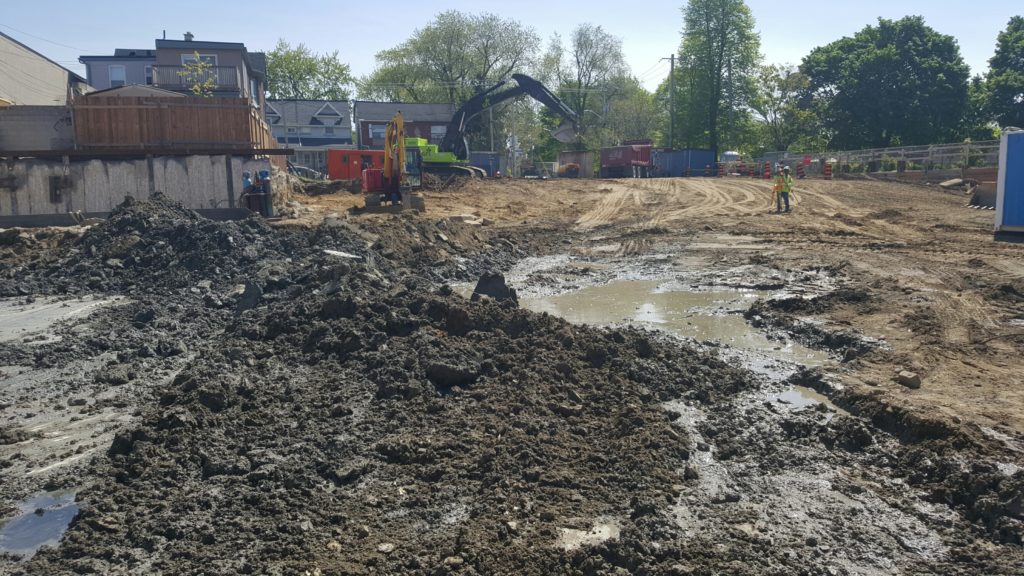Project Spotlight: Ontario’s Modified RA Process Saved an Industrial Redevelopment with Hazardous PCBs
By: Paula Schuster, B.A.Sc.
pschuster@pggroup.com
Surprises cost time and money when it comes to getting building foundations into the ground. Redevelopment of former industrial lands, or even simple residential sites, can be rife with surprises. As environmental consultants, we emphasize planning ahead and not scrimping on investigation phases; however, the reality is often quite different, and a variety of factors can pose limitations to the initial planning stages. Below is a success story of a Toronto industrial redevelopment where hazardous levels of polychlorinated biphenyls (PCBs) and deep chlorinated solvents in groundwater were threatening the schedule.
The Project
A multi-disciplinary and multi-stakeholder redevelopment project from industrial to residential land use. Scope included the remediation of hazardous PCBs, metals, hydrocarbons, and chlorinated solvent contaminated soil and groundwater. A Risk Assessment was required to address residual groundwater impacts below the basement and to support a Record of Site Condition (RSC). PGL provided support during redevelopment.

The Challenge
PGL was brought onto the project in the late stages of a redevelopment after ground had been broken and work was stopped due to safety concerns from hazardous PCB waste.
The Solution
PGL implemented a proper health and safety plan to get the job moving and regain confidence with the disposal facilities. We monitored the remediation of 51,000 tonnes of impacted soil while concurrently investigating the extents of impacted groundwater as required for the RSC. The Ontario Ministry of the Environment, Conservation and Parks’ (MECP) Modified Generic Risk Assessment (MGRA) model was used to address the deeper chlorinated solvent impacts. We worked closely with the developer, onsite contractors, and the MECP regulators to ensure the project was completed in an escalated time frame. Public consultation took the form of notifying neighbours of the Certificate of Property Use and intent of filing an RSC in a manner prescribed by the MECP.
PGL’s Value Added
PGL was able to complete the project within an escalated time frame, balancing active site redevelopment construction and keeping the project on schedule for the client. Throughout the process, PGL met frequently with the client and regulators to ensure communication was clear and that our remediation approach was supported by the MECP. The MGRA was accepted by the MECP within six months of first submission.
Update on the New Excess Fill Regulation in Ontario
As an update, the section of the new Excess Fill Regulation that were coming in to effect in July 2020 has now been postponed to January 2021, while we all sort out how to keep projects moving in a pandemic. For more information on these changes, please see this information notice https://ero.ontario.ca/notice/019-1853.
